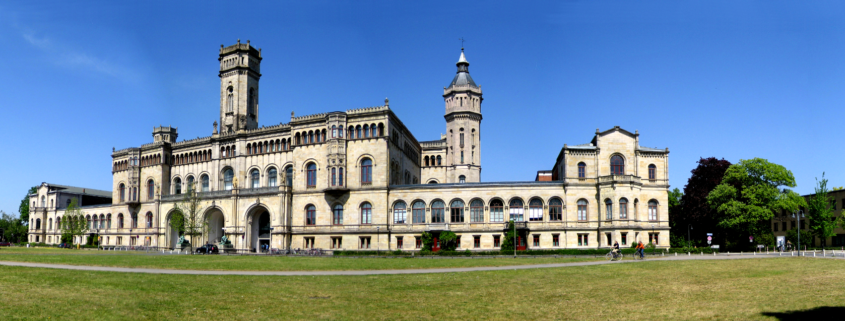GWP.2013
How Much Philosophy in the Philosophy of Science?
The GWP aims to organize an international conference devoted to all fields of philosophy of science every three years. The first triannual international conference of the GWP, GWP.2013, was hosted by the Department of Philosophy at the University of Hannover.
Invited Speakers
- Peter Godfrey-Smith (The City University of New York)
- Stephan Hartmann (MCMP, LMU Munich)
- James Ladyman (University of Bristol)
- Sandra D. Mitchell (University of Pittsburgh)
- Chrysostomos Mantzavinos (University of Athens)
- Margaret Morrison (University of Toronto)
- Wolfgang Spohn (University of Konstanz)
Aims and Scope
Philosophy of science, in the last decades, has evolved into a number of autonomous subdisciplines, the disciplinary standards of which derive much more from the respective scientific disciplines on which they focus than from any core of common methodological, epistemological or metaphysical principles. For many, that seems to fulfill the dream of philosophy as approaching finally the firm course of science. However, the legitimate question arises as to how much philosophy there is in recent philosophy of science: How strongly has philosophy of science moved towards science and, perhaps, away from the philosophical tradition? How is this move to be valued? What are its consequences for the scientific relevance of the work that philosophers of science do? What are its consequences for philosophy of science as a unified and recognizable discipline? And in which direction should philosophy of science move in the near future? These will be the focal questions of the conference.
Without any doubt, the conference will in various ways certify the increasing dissociation of philosophy of science by presenting pieces of actual debates in the philosophy of physics, the philosophy of biology, the philosophy of social sciences and other subdisciplines. Nevertheless our aim is to also furnish some evidence to the ongoing quest for unity that we think is present in contemporary philosophy of science. Despite the differentiation mentioned above, there is lots of boundary work going on between the different areas of philosophy of science. In part, this occurs because some currently intensely debated concepts, such as causality, mechanisms or complexity, transgress the divisions between philosophy of physics, biology or social sciences. Thus, we would like to suggest to participants to reflect on which philosophical themes, debates, foundational ideas, methods, orienting traditions, etc. steer their way through the particulars of their research in philosophy of science. Covered by a surface of technical elaboration, philosophers of science may identify again some hidden traces of unity.
Panel Discussion “Caught between a rock and a hard place”
The conference will also host a satellite workshop for junior researchers and a panel discussion that concentrates on the hands-on side of the conference topic. Workshop and panel discussion are supported by the Andrea-von-Braun Foundation. For details see:
The GWP invites contributions devoted to all fields of the philosophy of science. For submission and technical details see:


